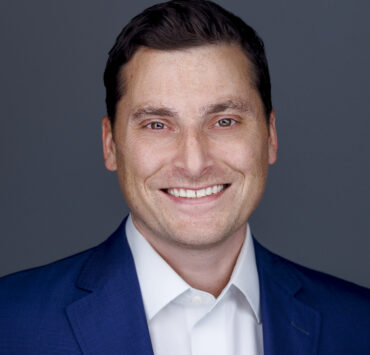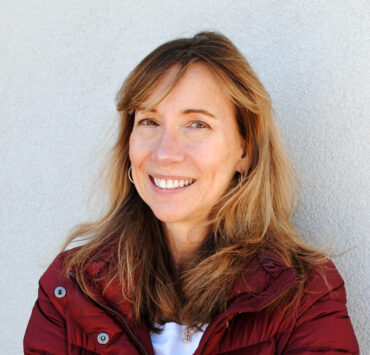By the time she decided to go into intellectual property law, Andrea Merin knew she would be following in her father’s footsteps. However, she didn’t always know what her father actually did as a patent attorney. “I remember visiting him at his firm when I was little, and he would have all different types of devices in his office, but I didn’t completely understand what that meant,” she admits.
It wasn’t until she began studying chemical engineering at Tufts University that Merin started to put the pieces together. She realized that her father’s office was full of engineers—and that she, too, might have a place in the world of IP.
Today, as senior IP counsel at Abiomed, Merin applies her training in law and engineering alike to protect the medical device company’s portfolio of healthcare technologies. But it is her commitment to reshaping the reputation of IP itself that speaks most clearly to her impact within Abiomed and beyond.
After getting an early taste of IP law at her father’s firm, Merin went on to obtain a master’s degree in biomedical engineering in addition to her law degree. She then completed a yearlong judicial fellowship at the state court level before joining IP firm Wolf, Greenfield & Sacks in 2012. During her nearly nine years there she encountered design patents, now a specialty of hers.
“We ask innovators to push the boundaries of what they thought was possible and to question how else they may tackle a problem.”
Andrea Merin
“Somewhat early on, one of our clients wanted to get protection for both utility and design—how something works and also how it looks,” Merin explains. “Design patents are one way to create roadblocks for competitors who are trying to get into the same space. It ended up being something I had a lot of opportunity to work on and, as I grew up in the firm, to become an expert in. It’s been fun to bring that experience to Abiomed and teach folks about it.”
Indeed, education—whether formal or informal—plays a significant part in Merin’s current role, which she has held since August 2021. Beyond overseeing prosecution-related matters, she leads trainings and holds regular check-ins and office hours, all in the interest of teaching Abiomed’s engineering team and other internal stakeholders how IP fits into their work.
Those touchpoints have gone a long way toward increasing the IP team’s visibility within the organization. “At the end of the day, what’s driving the business is the creativity and the ingenuity of our inventors,” says Merin. “We’re here to support them, but that’s hard to do if we’re not approachable or if they don’t know who we are, what we do, and how we can help them.”
To break down those barriers, Merin leans on her people skills and sense of humor. “We started giving out food at our office hours because food is a universal language. We would do ‘pies and patents’ or ‘pretzels and patents.’ Over the summer, we did ‘ice cream and IP,’ and . . . there were probably sixty people who stopped by,” she says. “It creates these planned moments of levity where we can talk about important things, share our trainings, learn what others are doing, and thank [individuals] for their contributions.”
Merin deepens her ties to inventors during strategic discussions regarding their specific projects. As a fellow engineer, she knows how to speak the language of innovation but as an attorney, she also knows how to ask the right questions to protect their ideas.
“I always look for ways to bring in what my husband calls my superpower: my ability to talk with people, relate to them, and let them know that I’m listening to and understanding their questions.”
Andrea Merin
“We ask innovators to push the boundaries of what they thought was possible and to question how else they may tackle a problem,” she says. “In this discipline of law, it can be easy to forget that you’re a lawyer because you’re entrenched in these highly technical conversations more often than not.”
Merin sees engineering and law as two sides of the same coin, both requiring her to think critically. Yet she places equal emphasis on exercising empathy, especially in the context of leadership.
“I always look for ways to bring in what my husband calls my superpower: my ability to talk with people, relate to them, and let them know that I’m listening to and understanding their questions,” she says. “Abiomed is a fantastic forum for that because the company tries to empower everyone to lead in some way, big or small.”
For Merin, that means continuing to underscore the human side of IP. She makes a point of demystifying the field at home as well, by offering her children a straightforward explanation of her work. “I help protect people’s creations,” she tells them. It’s a simple statement that gets to the heart of not just her own daily mission, but that of her father before her.


